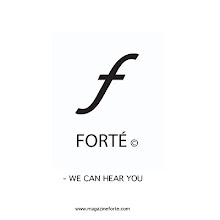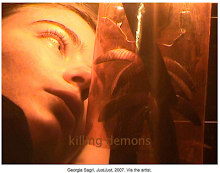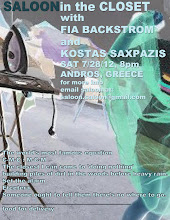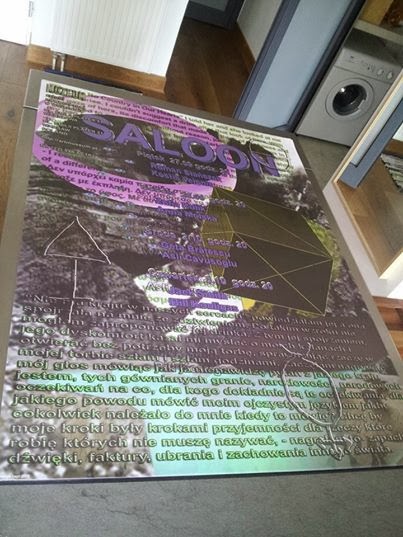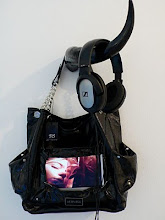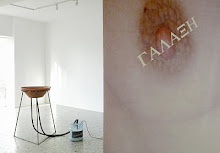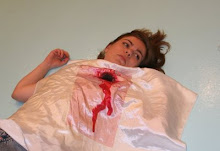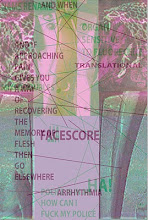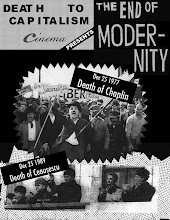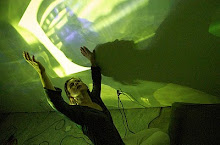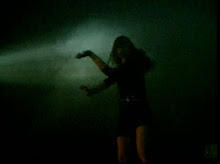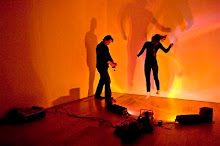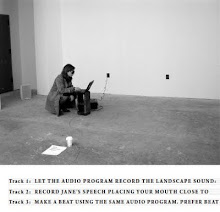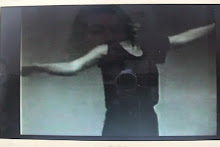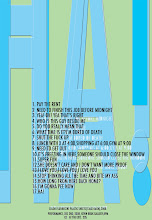12/26/2011
Note (replying to a mailing list)
12/10/2011
Mona Lisa Effect / Eleni Tzirtzilaki, Caper, 2014
12/07/2011
Call for an open GA for ALL, Friday 11/11/2011, 7pm, Liberty Square
The past weeks OWS has witnessed rapid bureaucratization and centralization of the GA. Specific working groups, most dramatically in the context of the Operations Spokes Council, have authorized themselves as the ritual keepers (via dogmatic facilitation/process/structure rules) of the movement. This has created confusion and ambiguity in the public discourse. It has prevented each individual from empowering himself/herself to create or act in the GA without being identified as a professional participant. We have seen money issues and organizational questions ruling most of the General Assemblies, while putting aside the reasons and frustrations that led to the occupation movement. This, inevitably, means schism between the ones who authorize and the ones who are here to participate.
We call for an open General Assembly for all.
We don’t ask permission from anyone to be imbued with that authority. We continue to learn from each other the possibilities of Direct Democracy.
Theses on Direct Democracy (open document):
Direct Democracy comes as a necessary imperative act that puts priority for a radical overthrow of the system of political representation, the State and the commercialization of everything. This social organism does not leave space for any kind of hierarchies, leaders, governors and political parties. It gives space to every individual to experience and practice politics and at the same time to be transformed within it. It is for all people, who experience the joy of personal initiative, of collective try, of solidarity, as well as, of love. All resources of our common life and the means to satisfy our common needs, cannot be but common, into the hands of society itself, which, with no need of any kind of mediation, decides an equal distribution of them, for all.
1. All space is open to everyone’s participation and it belongs to everybody.
2. The equal participation of everyone shapes the making of decisions, as well as the control of their application, both in the political and the economy field.
3. All necessary representations have strictly coordinating or executive nature and not mediating, representative or decisive character.
4. The existence of many local assemblies (in neighborhoods, municipalities, workplaces, schools of education, etc.) that communicate is the cornerstone of Direct Democracy. Participation in these assemblies is not occasional, but it is as responsible and regular as possible.
5. Communication between local assemblies creates a horizontal (non-hierarchical) network, which serves to coordinate the required theses and acts.
We want everything for everyone. We are history in motion.
Now is the time to overthrow all forms of authority.
Announcement Text on November 2nd, 2011 / Direct Democracy Working Group of OWS
Announcement Text on November 2nd, 2011
Direct democracy is used to describe the process and the unique character of our movement but we haven’t had any time to create substantive thoughts in that direction. The flux and the intensities of events have not allowed us a space, for thoughtful deliberative thinking on the importance of direct democracy.
There have been lots of actions but maybe we also need to think and shape future manifestations and activities of direct democracy.
Working groups in OWS are developing further the concepts of direct democracy without being able to expand our experience and knowledge of what that means, although practicing it.
What we create here in this square and in many other squares around the world is not just an ephemeral experiment. What we do today is the birth of direct political participation, passion for social engagement and happiness, passion for direct involvement to the commons. It is clear that political representatives are not anymore capable to create the political circumstances and to make decisions in our account. It is obvious that they make decisions for the benefit of the 1%.
All of us with our every day life interactions we demand direct democracy and we establish ourselves together as one person beside another person in political participation. This is a historical moment not only because it is beyond leaders and flags, but because we revolutionize our understandings of what politics is and what it can be.
Direct democracy takes democracy out of the corporate offices and the economic negotiations and political elites and brings it back to our lives and engagement. It is up to us then to direct it.
Direct democracy working group invites everyone to direct the participation process and allow its further continuation and growth. Through connection and communication with other international working groups (for example Syntagma square in Athens and Indignados in Spain) who are also discussing the concepts and understandings of direct democracy, we will expand our collective practices together.
11/17/2011
Mona Lisa Effect / Alaina Claire Feldman, MALINA IN HD, 2012 ongoing
11/03/2011
1st NYC Anti-Authoritarian, Anarchists, Autonomists
OPEN ASSEMBLY
Tuesday, November 8 at 8:00pm - November 9 at 4:00am
This is an open call for everyone that feels an affinity for this Assembly
* Oakland (report back?)
* Nov 10th West Goes Inside
* Nov 17th Call for General Strike
Points of conversation:
- Spreading different forms of occupations (how?)
- Mapping the city to our advantage
- Tactical coherence
- Towards the de-census of every GA
- Distribution of communication (twitter, facebook) and its conflicts
- Media and Livestream problematics
- Future events and calls
no journalists / no cops
10/21/2011
10/06/2011
NYC GA / Wall street Occupation

NYC GENERAL ASSEMBLY, WALL STREET OCCUPATION
NYC General Assemblies are an open participatory and horizontally organized process through
which we are building the capacity to constitute ourselves in public as autonomous collective
forces within and against representative politics, cultural death and the crisis of our times. NYC General Assemblies are a gathering of individuals, coming from various political, economical, ideological, cultural backgrounds. With our voices and our presence we share our problems, fears, ideas, dreams. The General Assembly is not a group. General Assemblies break through the idea of the political group by bringing together a variety of ideological patterns, old political procedures and test them in public, expose them, act upon them and transform them.There is no leadership, no representation, and no authority. We become political beings through our participation to the commons.
The process of the GA is already a fundamental action. To be able to make decisions together for a resolution, participation to an action and to have a gathering and a political conversation in the most policed city in the world is itself a political statement. NYC General Assemblies are actions that open space rather than producing polarizations. They create environments for everyone to have a unique and important role.
The General Assemblies is everyone. It is you who sees the limits of the politics of alienation, the cruelty of the economic regimes, cultural hypnosis and the standardization of every form of life for the benefits of the 1%
Who Represents You Replaces You
We are the 99%
On Sept 17th we occupied Wall Street. We have come together and crafted these principles of
solidarity, which are points of unity that include but are not limited to:
* Fighting for social, political economical and cultural FREEDOM & EQUALITY;
* Engaging in direct democracy;
* Exercising personal and collective responsibility;
* Recognizing individuals’ inherent privilege and the influence it has on all interactions;
* Empowering one another against all forms of oppression;
* Redefining how labor is valued;
* The sanctity of individual privacy;
* The belief that education, health care, transportation, culture, technology, information,
housing, nutrition and natural resources cannot be subjects of exploitation; and
* Endeavoring to practice and support wide application of open source.
The Occupation in Wall Street doesn't claim any responsibility or control for the spontaneous
initiatives, practices and direct actions taken by the people in the streets of NY.
The Occupation in Wall Street is not a metaphor. It is the coupling of politics and life that wasn't
even imagined a few months ago.
NYC General Assemblies is not a central political formation. It moves the bodies. Sometimes
gatherings split to exist in smaller units in the spaces of the metropolis and sometimes they
gather together again when it is needed. Who is able to predict what those bodies want and need and when? There can't be any leader or leading idea to this movement but only forces, forces of sentiment.
9/13/2011
Mona Lisa Effect / Mellanie Gilligan & Alex Fleming, Talk Show, 2014
Performers/ Talk Show Conributors:
Hannah Black
Cammisa Buerhaus
Macgregor Card
Melanie Gilligan
Norhan Hassan
Tavish Miller
Cassandra Setlman
Carlos Solis
7/29/2011
Note: For video
- I lost my camera my keys the apartment.
- I'm under influential nets and affects.
- My phone is off for a week now and I can't find my love my smile and my cry.
- Do you like reality tv?
- My dreams are turning gray and green. The fluorescent dreams of a well tuned joy.
- Since I was born after the dictatorship I am searching for the tools to translate how I can place my self and what to do.
- Confrontation
- occupation,
- a party,
- the one to one meetings,
- to only take care of you and just forget macro expectations.
- It is the impossibility that created us.
- Stop work and meet us.
- We'll steal the wind and the wine and run to the edges.
- I'll meet you in an hour.
7/28/2011
Sunday -- 07.31.11 -- For General Assemblies in Every Part of the World
CONTENTS:
1. About Sunday
2. Some of Sunday's Contributors
3. First Resolution of the Direct Democracy Assembly in Athens
4. Conversation with Participants of the General Assembly in Athens 5. Conversation with Sabu Kohso about a post-Fukushima world
6. Useful Links
_____________________________
1. About Sunday
When: 1:00 pm - 5:00pm
Who: Free and open to all
Where: 16 Beaver Street, 4th floor
What: Meeting / Discussion
Attempt 1 : (to summarize this event into one line)
Anti-austerity/pro-democracy groups and individuals meeting at 16Beaver
Attempt 2 : A day devoted to exploring the inter-relations of recent global/local struggles through first-hand accounts
Attempt 3 : A day dedicated to create short-circuits in our imaginaries
Attempt 4 : (breaking the one line rule)
To attempt to recount the signs and cracks that have appeared over the last decade in the facade of the worlds of power would require a book length introduction. But one senses that in the midst of a crisis that has called into question the last 20 years of post-historical and
post-political proclamations, the last 7 months have catapulted humanity back into a global dimension of struggle and revolt.
One senses that at this juncture, in the midst of the revolutionary struggles across North Africa, the Middle East, and now the Mediterranean, there is renewed understanding of what non-representative politics can look like.
What does a democratic multitude look like? And how does it invent a new vocabulary for praxis? How does this general intellect, that has
strengthened over the last few decades, transform into political action?
On what grounds can this emergent politics be conjoined across disparate sites and struggles? How does one express solidarity with the events in Tunisia or Egypt, for example? How do those struggles and approaches get translated elsewhere? How were they put into play in Spain? And how did the events in Spain inspire a resurgence of political strategies in the most recent developments in Greece?
How do the euphoric dimensions of these successes hold up to the grim prospects of a post Fukushima reality? What can we learn about and from the nuclear disaster which has unfolded since March and are there
prospects to use some of this knowledge in our movements?
This Sunday is a special day at 16 Beaver, as we will be attempting to bring together reports on various struggles from North Africa, Spain and Greece, post-Fukushima Japan, and trying to connect them to contemporary struggles right here in New York and the US. The event comes together out of the interest of various individuals and groups here in New York to build upon some of these developments globally, learn from them, and put them into play here.
The event also takes place in the background of various calls to
mobilization, which include a call for a People's Assembly, in front of the bull near Beaver Street, on August 2nd, as well as a call to occupy Wall Street on September 17th, and an effort to mobilize an occupation in Washington beginning on October 6, 2011.
What can be learned from these global experiences within movements here in the US? This afternoon will begin with reports from various individuals speaking on behalf of struggles from specific international contexts and here in New York. Then we will proceed to open up to questions and allow a discussion to unfold.
As a part of the event, we conducted two conversations in preparation.
A few of the organizers of this event conducted an interview with a few of the participants of the General Assembly in Athens.
And we also recorded a conversation with Sabu Khoso about post-Fukushima Japan.
The recordings have been posted as a resource - especially for those friends who live in distant places but are nonetheless inspired,
concerned, and interested in these processes.
_____________________________
2. Some of Sunday's Guests
We are still in the process of confirming people who will be coming and speaking. And of course, we have no idea who will get this invitation and come. But we make an attempt below to give an idea of some people who will be joining us.
New Yorkers Against Budget Cuts
http://nocutsny.wordpress.com/
Antonio Poudereux Velasco lives in Madrid and has participated in the occupation of Puerta del Sol. He is a member of the World Extension Team created during that occupation. He will not speak in this event as a representative of neither that team or #acampadasol, but as an individual. He works as a sound engineer.
Georgia Sagri is an artist and non-employed activist. From early age she has been a member of the Void Network, a cultural, political and
philosophical collective in Athens Greece with the aim the radicalization of every day life, the participation to the emancipatory social struggles, the creation of social centers, self-organized autonomous spaces and the construction of situations in Public Space.
Sabu Kohso is an independent writer and translator, a native of Japan, living in NYC since 1980. He has written three books in Japanese on social movements and progressive culture of NYC in relationship with the
formation of urban space, as well as a book on the geographical and deterritorial lineage of anarchist thought across the world. He has also translated books by Kojin Karatani, Arata Isozaki (Japanese to English), David Graeber and John Holloway (English to Japanese). Being active for many years in establishing a global network of anti-authortaian movements in and out of Japan, Kohso is currently working on the blog Jfissures for the exchange of critical voices between the disaster stricken Japan and elsewhere.
Costas Panayotakis is Associate Professor of Sociology at the New York City College of Technology of the City University of New York. Originally from Greece, he has written many articles on Greece, been interviewed by radio and TV programs in the US and abroad and is the author of Remaking Scarcity: From Capitalist Inefficiency to Economic Democracy, which will be published this fall by Pluto Press.
Luis Moreno-Caballud is a member of the group/assembly Democracia Real Ya - NYC, which is part of the Spanish May-15 movement. He also researches and teaches Spanish contemporary history and culture at the University of Pennsylvania, in Philadelphia.
Larry Hales is a community activist and fighter. While living in Denver, Larry was one of the founders of Colorado United Communities Against Police Brutality, and an organizer of the Recreate 68 Coalition, organized to protest last year’s Democratic National Convention. In November 2007, Denver police broke into Hales’ house and arrested him on false charges arising from his giving shelter to a victim of police brutality who was out on parole. Months later and after a strong people’s campaign, the charges against Larry were finally dropped. Presently, Larry Hales is an organizer for the Bail Out the People Movement and the youth group Fight Imperialism Stand Together (F.I.S.T.), and a contributing editor with Workers World newspaper.
Doug Singsen is active in the movement against budget cuts in New York City and in the student movement against tuition hikes at the City University of New York (CUNY). He helped organize the National Day of Action to Defend Public Education on March 4, 2010, the Day of Rage Against the Cuts on March 24, 2011, and the recent Bloombergville
occupation. He is a member of New Yorkers Against Budget Cuts and the International Socialist Organization and is a PhD student in the Art History Program at the CUNY Graduate Center.
Mohammed Serbout was born and raised in Morocco from a working family, went to school and studied hard in order to have a better future, but the reality is there are no chances left there, so he decided to participate with the youth in changing the status quo of the actual regime...
Yotam Marom is a member of the Organization for a Free Society and the New Yorkers Against Budget Cuts Coalition, and has been active in the
anti-austerity struggle in New York City, most recently through the Bloombergville occupation. Yotam is a co-founder of Without Walls - a democratic, social-justice oriented educational collective - and has experience in communal living. He is also a writer and musician.
_____________________________
3. First Resolution of the Direct Democracy Assembly in Athens
For a long time decisions have been made for us, without us.
We are workers, unemployed, retirees, youth, who have come to Syntagma Square to fight and struggle for our lives and our future.
We are here because we know that the solutions to our problems can come only from us.
We call all residents of Athens , workers, unemployed and youth, to come to Syntagma Square , and all of society to fill the public squares and to take life into its own hands.
In these public squares we will shape our claims and our demands together.
We call on all workers who are going on strike in the coming days to show up and remain in Syntagma Square .
We will not leave the squares until those who compelled us to come here go away:
Governments, Troika (EU, ECB and IMF), Banks, IMF Memoranda, and everyone that exploits us. We send them the message that the debt is not ours.
DIRECT DEMOCRACY NOW!
EQUALITY - JUSTICE - DIGNITY!
The only struggle that is lost is the one that is never fought!
_____________________________
4. Conversation with 'Some of the Participators of the General Assembly of the Direct Democracy in Athens'
This conversation is an attempt to open up the process of the General Assemblies taking place in Athens on Syntagma Square, like an engine, in order to understand how it developed, and how it works. It touches on the problems they have faced, the barriers of having fixed ideological agendas, the question of restricting media access, of formulating respect, creating the form for a new political speech, drawing lots, voting, making resolutions, taking collective actions, establishing different thematic groups, working groups, allowing conflict and arguments, constructing a non-representative political agency, avoiding demands, ….
For listening to the conversation, please visit:
http://sduk.us/conversations/072511_greece_assembly.mp3
_____________________________
5. Conversation with Sabu Kohso about a post-Fukushima world
This is an attempt to speak with Sabu Kohso, a writer, translator from Japan, living in New York. Since 3-11, Sabu has been working with others to run and maintain jfissures (jfissures.wordpress.com) one of the few websites to attempt to translate pertinent texts into and from Japanese related to Fukushima and connecting it to a global context. This is an impromptu conversation which took place in preparation for Sunday's event. Sabu tries to speak about his own relation to what has happened in Japan, the reflections and fissures within Japanese society, the potential questions which emerge from that experience, and how they might also connect to other historical experiences of struggle in Japan.
For listening to the conversation, please visit:
http://sduk.us/conversations/072711_sabu.mp3
If you are interested in reading some recent texts from Sabu, please read:
Notes for Understanding What is Happening in Japan
http://th-rough.eu/writers/kosho-eng/notes-understanding-what-happening-japan
Fangs Hiding in the Green -- Impressions of Post 3/11 Japan
http://th-rough.eu/writers/kosho-eng/fangs-hiding-green-impressions-post-311-japan
_____________________________
6. Useful Links
http://www.facebook.com/#!/event.php?eid=174935459243842
http://www.facebook.com/#!/event.php?eid=144937025580428
__________________________________________________
16 Beaver Group
16 Beaver Street, 4th fl.
New York, NY 10004
for directions/subscriptions/info visit:
http://www.16beavergroup.org
TRAINS:
4,5 Bowling Green
R,W Whitehall
2,3 Wall Street
J,Z Broad Street
1,9 South Ferry
Note: Thursday July 28th, At the Grand Openings Return of the Blogs, MOMA
At the Grand Openings Return of the Blogs, MOMA
There isn't so much going on today. The lounge with the
leather sofas and the left overs from past events perhaps are here to
point out some kind of process. I call it the vip community lounge.
the planks blogging the blogs so none can really read them. the
security is here. mostly the security. The hypnotized visitors. The
tickets are moving around. Recognize the tempo of screen saver and
stay for a while to watch. Promotion. Sam's signature. I look how they
raise their heads to look at the balloons. Museum. The security
doesn't let people to sit on the sofa and watch the video. Confusion.
Seems that the sofa is part of the installation and no one can sit on.
Good job.
7/25/2011
Live Portfolio 2007-2011
Saturday, July 23, 2011, 3:00 p.m.- 6:00 p.m., MOMA, The Donald B. and Catherine C. Marron Atrium, second floor.
Georgia Sagri makes a live mix-tape of performance pieces she has presented in NY from 2007-2011. Invited by Sagri a group of friends develop a code ouji demonstration while her brother and activist Tasos Sagris will be answering questions about the current uprising in Greece, addressed by everyone present.
It is the making of the portfolio, its format, its banality of duration by adding the real and the live, like the leaking juices of fresh fruits, sticky fingers, too much nature, smelly and weird. The sounds of pain/ the cracking of fear/ the whispers of pause/ the abominable posture/ hand/ arm/ neck. The expression of the remembering of an incident but not the incident itself. Is that possible? Squeezed among some languages you know, you pretend you know, you want to know. Scratch it, suck mediations, which that could be a type of mimesis. Doing from directions coming from elsewhere. Rather unexpected than improvised. There is no 'as if'. It is the design of the portfolio. Making portfolio and forgetting portfolio. This was only a draft, some other things will come up and you will be noticed. The power point presentation will be totally and extremely burst with lying. "I wasn't expecting something different." Of course nothing will be placed in the correct chronological order. Are you accusing me of narcissism Apple > ?
"I love my i-phone." The i-pad portfolio and the fingernails' padpads on the keypord. Work in the mid of the summer and wonder what social class is. Hot is slow. Touch, skin and the right jeans. As always at the corner with the smoke in the mouth. An electric cigarette. The taste of look. How she moves her eyes when she is trying to be convincing, and how she stretches her neck every time she

7/13/2011
7/08/2011
7/07/2011
W.I.P for Women In Prison and Work In Progress (First Episode)
The head turns. The arm touches the ground, stopping violently. Movement comes out of the speakers. It starts from zero on the timeline and leads to the end of the loop, its beginning.
Is it the machine that’s in question? Do you obey? Do you try to exist within it, against it, around it? The machine--machina in ancient Rome, mechane in ancient Athens--is still what we call the apparatus of war, all the weapons bought and sold, used and lost during battle: the armor, the gas masks, the Molotov cocktails, the cybernetic networks, prohibitions, negotiations, settlements and the camps (office camps, party regulations, yoga memberships, etc). It is the theater and its apparatus: the entertainer's tricks and special effects, the lights going on and off, the curtains opening and closing, the fake blood, the props and costumes, the fluorescent paint on the masks that pin down the characters, the strings that hold ex-machina gods up in the air ready to turn various histories upside down whenever they settle, finally, for just a second on stage. It is the dubbed sound in Italian Spaghetti Westerns, the actors counting “one, two, three, four, five” instead of speaking sentences. It is Pier Paolo Pasolini adding sound to the film while editing the recorded images. It is Godard's subtitles, his obsession with texts on film and the way he reduces cinema’s speed. It is Roberto Rosellini's remote control gadget for zooming in and his preference for working with amateur actors. It is Maya Deren's cuts and the way she worked with film exposure. It is Jacques Tati’s mime routines, his micro-gestures and their connection to comedia de l'arte.
The machines of theater and the machines of war: they are interchangeable.
“How did it go?”
“Was it successful?”
Machine and tool are one and the same.
There are a million ways to compose and re-articulate a smile, a cry, and the hand holding a glass. A million ways to rehearse and present a cry, a smile, and the hand holding a glass in real time.
They are modules: “the principle behind the distribution of breaks and intervals.”
There is no representation, only presentation and the analysis of the symptom’s mechanisms existing at the moment of the performance.
The tool I use in the performance is my female body. I was born with that body. I could resist it. I could change gender for the performance or pay other people to perform for me. Instead, I insist on presenting myself as I am. The female body with its texts, imagery, history, pain, criticism, revolt. With my female body I can do the gestures of a man and be that. I can be the lion and the fish and the tree and the woman again, another woman perhaps, another posture. I can't pretend I am a non-smoker but I can look like I am a non-smoker. I can't hide my rotten teeth but I can smile in such a way as to camouflage them. That is what I have, simulations.
The women in prison told me that they have learned the techniques and the sensitivities of the State. They told me: “You must move from one point to the other and then back and forth without end.” I do what they told me in their letters. Is it cinema, then, and not performance? It is the war of the war machine, but not the war machine alone. The architectural plans, the social definitions, the prisons, the schools, the asylums, the houses, the offices, the pavements, the public spaces with their park security. It is life under the constant control of the structural, behavioral and moral architects, with their pose of authority and calculated plans. And then there are the ideal citizens, the syncopated rhythms among thousands of them on the streets.
During a riot, though, different politics arise. There are expectations of change, forgotten demands, and the repressed imagination of the lower class. What does it mean to pretend to be a citizen? What does it mean to shout phrases that you don't believe in? What does it mean to shout together with a group of workers? Who are you when you are doing that? Are those your machines of survival your survival kits? Were you born with them or did you just get used to them as you grew up? The Father, the Mother, the Teacher, the Emperor and How am I to obey? When is the right moment to put up the poster and when is the time to go home? Do I want to go to my place or do I want to live at our home?
This is not the end of the text.
Georgia Sagri, New York, 2011

The performance W.I.P (First Episode) was presented as part of the exhibition Skin So Soft, organized by Josh Kline at Gresham's Ghost, 401 Broadway, NY, 6/22/2011, photo by Linda Norden
5/28/2011
what I understand that you suggest about space of ease
x
g
100%ad (sleep cat)
The advertisement 100% (sleep cat) was created in March 2010 and was hosted for six months at the site of the publication company 100%. Georgia Sagri as the advertising girl, the producer and the crew of her advertisement company, used here smiling styles and voice temperatures of 80's advertisements.

